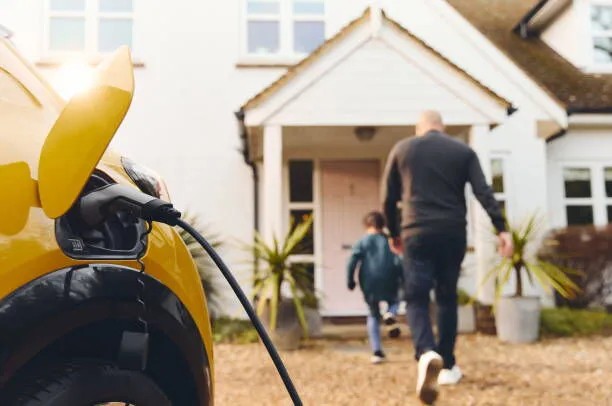Can You Install an China EV Charger at Home? Absolutely! Here’s Why It’s a Great Idea
With the rise of electric vehicles (EVs), many owners are exploring the convenience of installing an EV charger at home. Whether you currently drive an EV or plan to switch soon, having a dedicated home charging station can make your life easier and more cost-effective.
Simple Installation Process
For standard home chargers—typically 3.6 kW or 7 kW models—installation is usually straightforward and completed within a few hours by a licensed electrician. More powerful chargers, especially those requiring three-phase power, can be more complex because most homes don’t have three-phase wiring. Your electrician will assess your home and recommend the safest, most functional location—often a garage or driveway.
1. Convenience at Its Best
Charging at home means no more searching for public stations or waiting in lines. Simply plug in overnight, and your EV is ready by morning. This turns your garage or driveway into a personal refueling station, eliminating the hassle of carrying cables or finding a charging spot on the road.
2. Control Over Charging
Home chargers give you full control over when and how you charge. Many units offer scheduling options so you can take advantage of lower electricity rates during off-peak hours. Smart chargers often include mobile apps for remote monitoring, allowing you to check charging status anytime.
Charging at home also reduces uncertainties associated with public chargers—like availability, pricing, or maintenance issues—ensuring your EV is always ready when you need it.
3. Longer Battery Life
Home charging typically involves slower, more controlled power delivery compared to public fast chargers. This gentle charging reduces battery stress and can help extend your EV’s battery lifespan. Frequent use of fast public chargers can degrade battery efficiency faster, whereas steady home charging preserves battery health and reduces costly replacements.
Many home chargers allow you to adjust charging speed to balance battery longevity and charging time.
4. Enhanced Safety
Professional installation by a licensed electrician ensures your charger meets local codes and safety standards. Modern home chargers include built-in protections—such as surge protection, temperature regulation, and automatic shutoff—to prevent electrical hazards like overloads or short circuits.
Home charging is generally safer than relying on public stations, which may not always follow strict safety protocols.
5. Reduce Your Carbon Footprint
Charging your EV at home, especially if paired with renewable energy like solar panels, significantly lowers your carbon emissions compared to traditional gasoline vehicles. Even if your electricity isn’t from renewables, home charging often results in fewer emissions than some public stations powered by fossil fuels.
By installing a home charger, you actively contribute to a cleaner, more sustainable future.
6. Increase Your Home’s Value
An EV charger is an attractive feature for future homebuyers. As electric vehicles grow in popularity, homes with charging infrastructure can command higher prices and sell faster. Installing a charger signals that your property is modern, eco-friendly, and future-proof.
Conclusion
Installing an EV charger at home is a smart investment that offers unmatched convenience, safety, and control. It helps extend your vehicle’s battery life, supports environmental goals, and even boosts your property’s value.
With professional installation and thoughtful placement, your home can become a personal, reliable charging hub—ready to power your EV anytime. Whether you're focused on saving time, money, or the planet, a home EV charger is a win-win solution for today and the future. Know more about Google SEO Directory





Comments